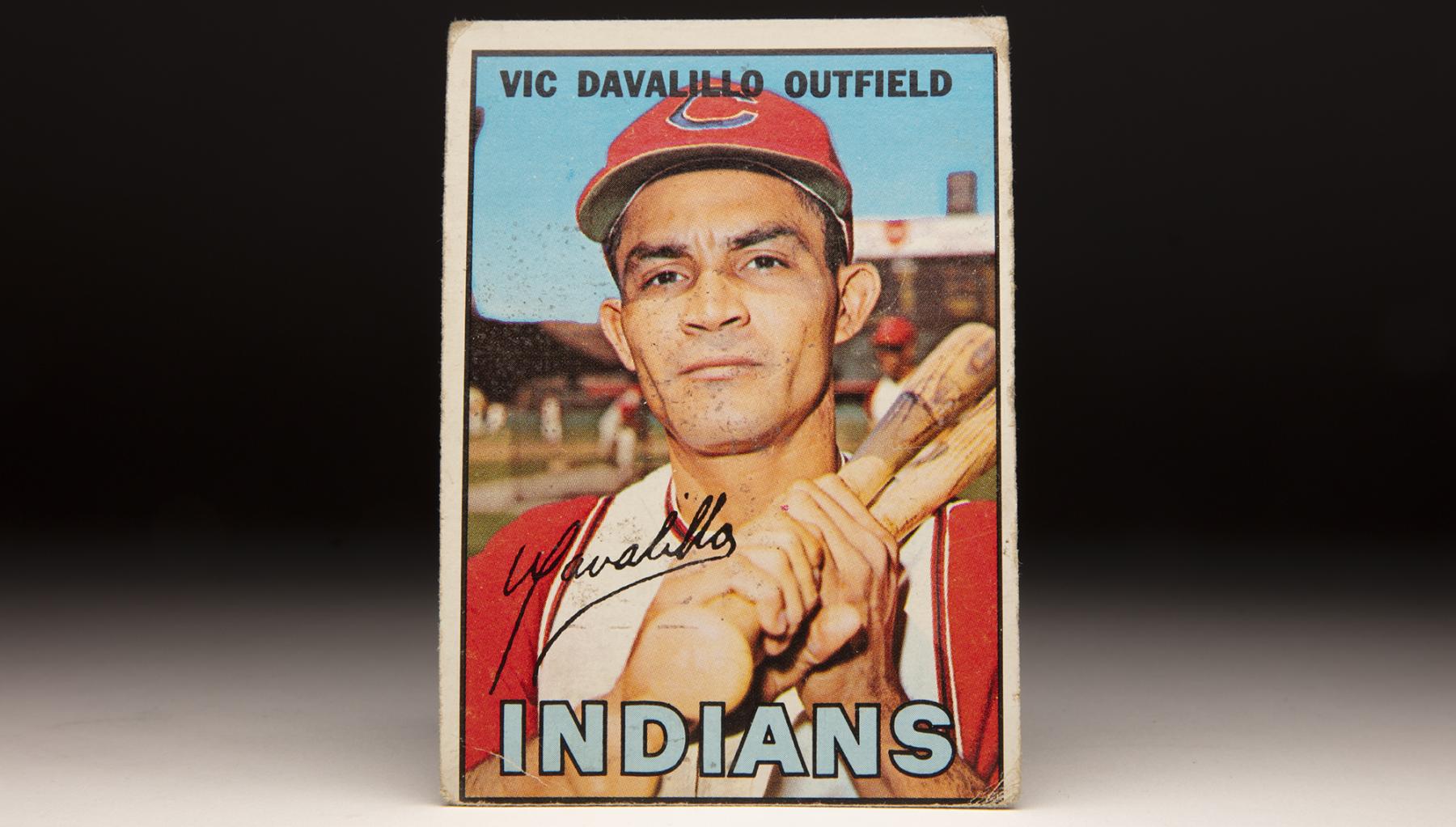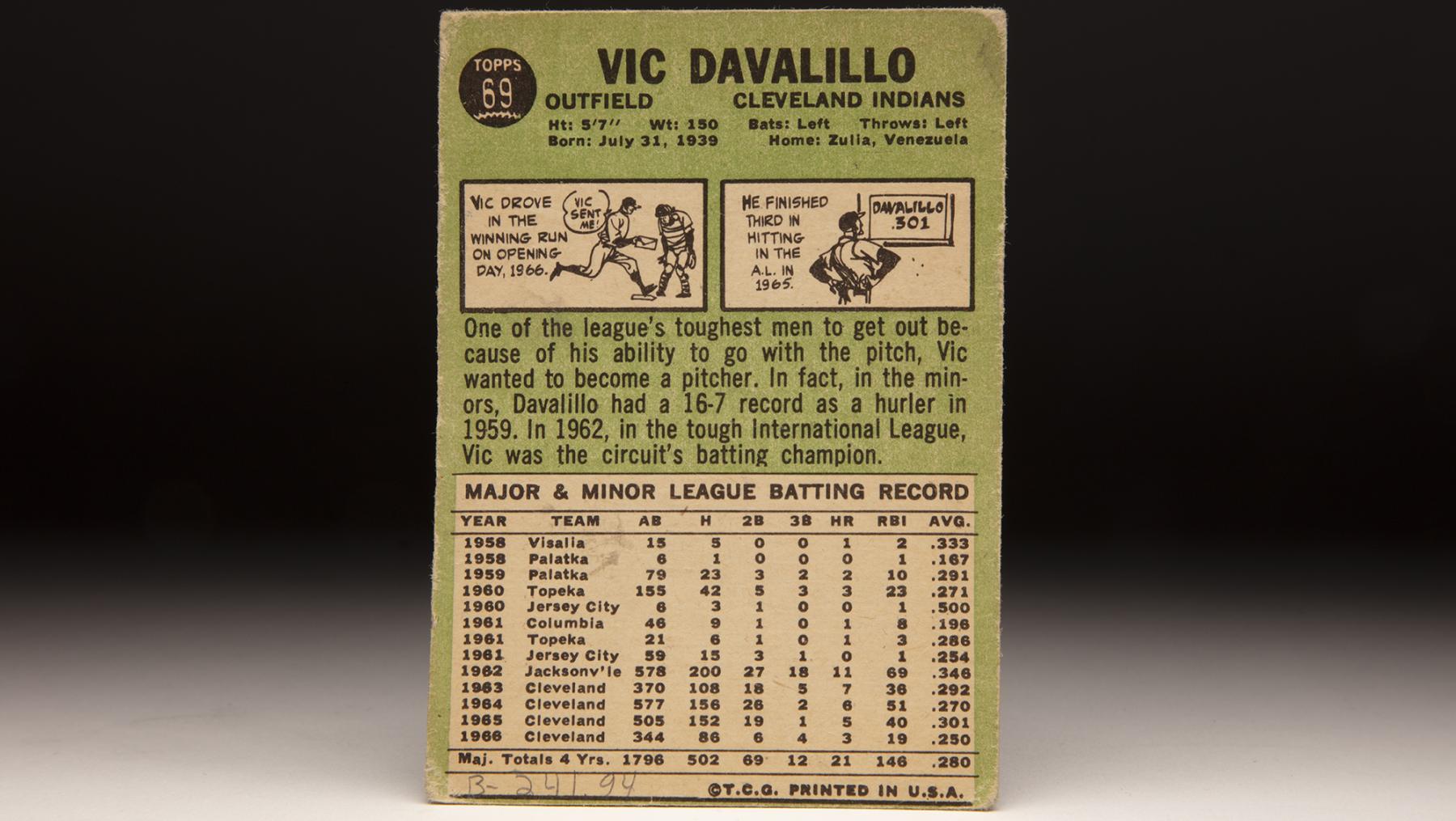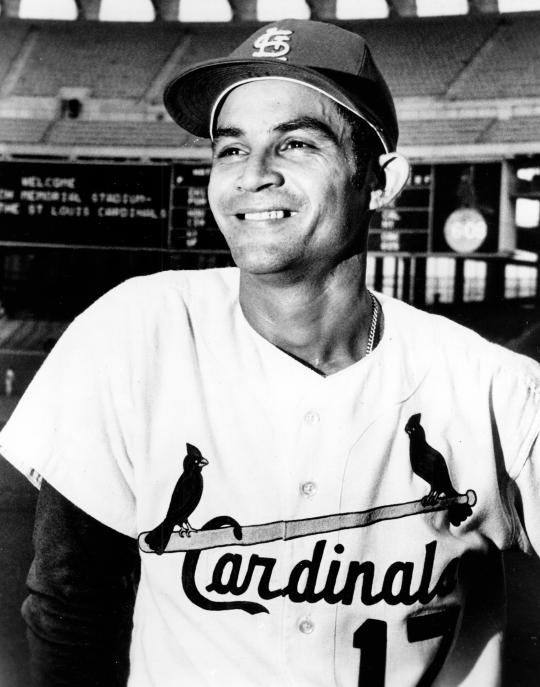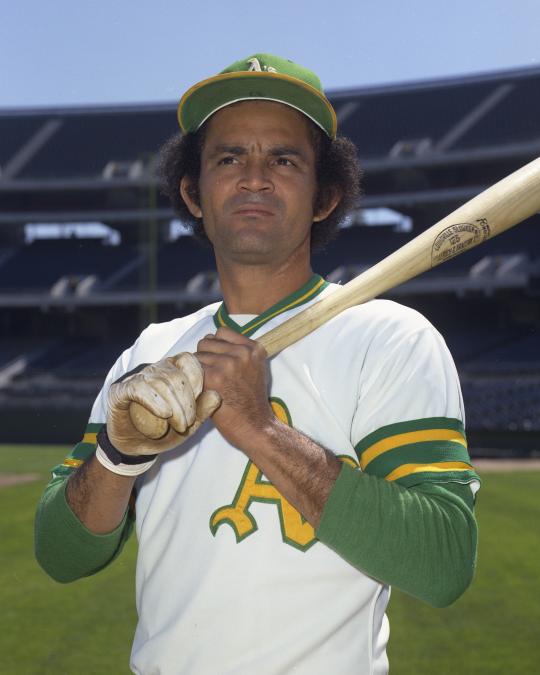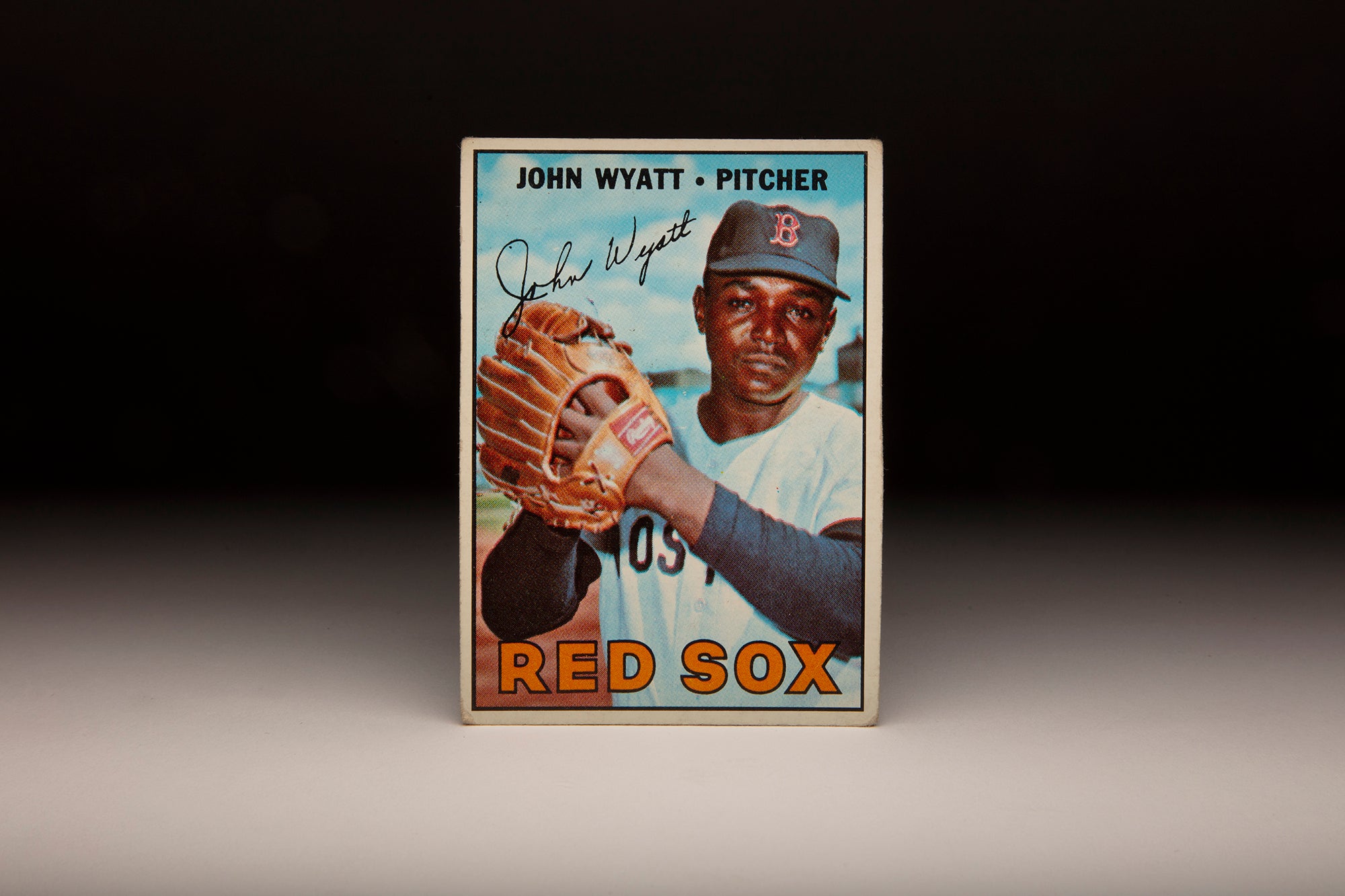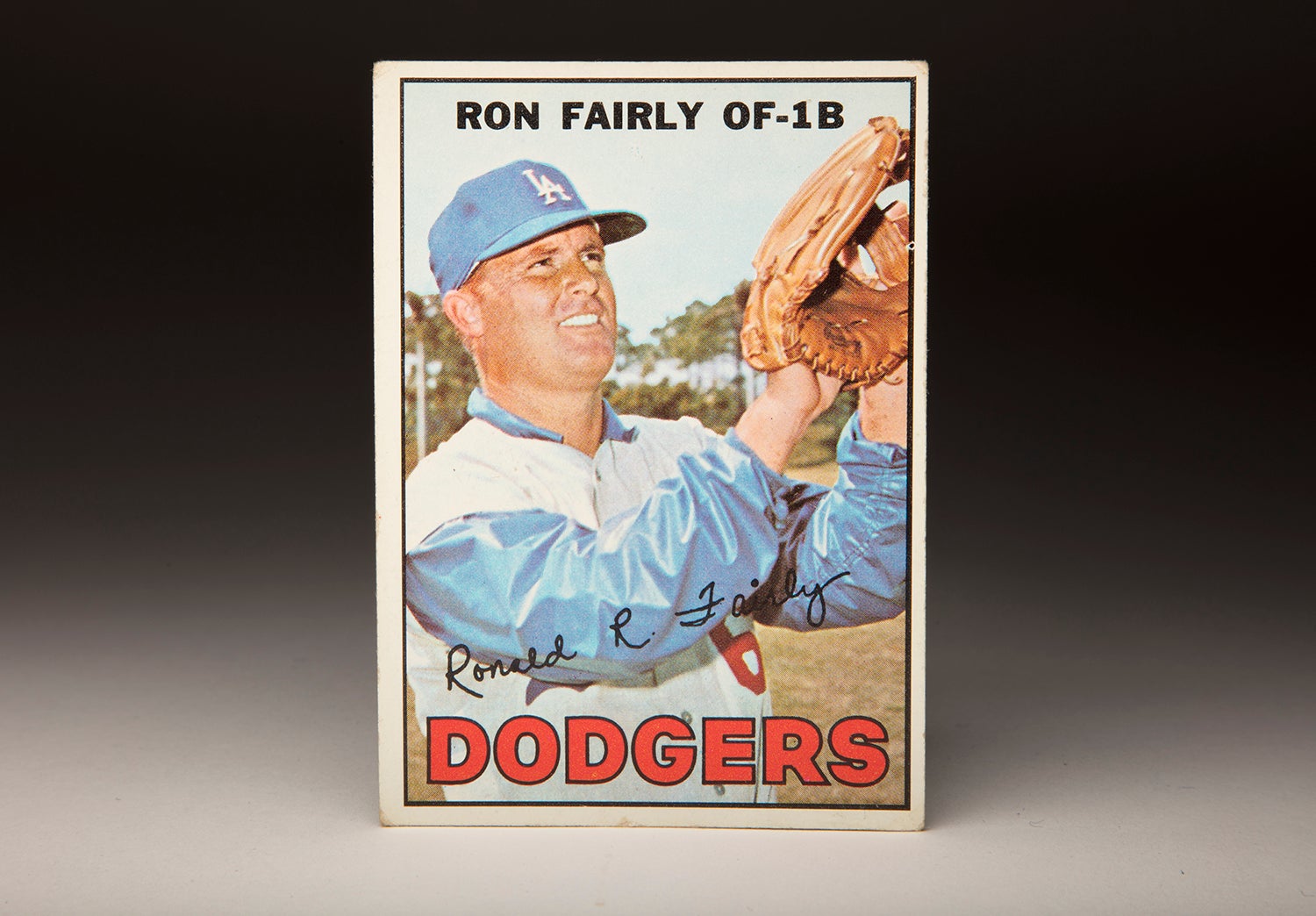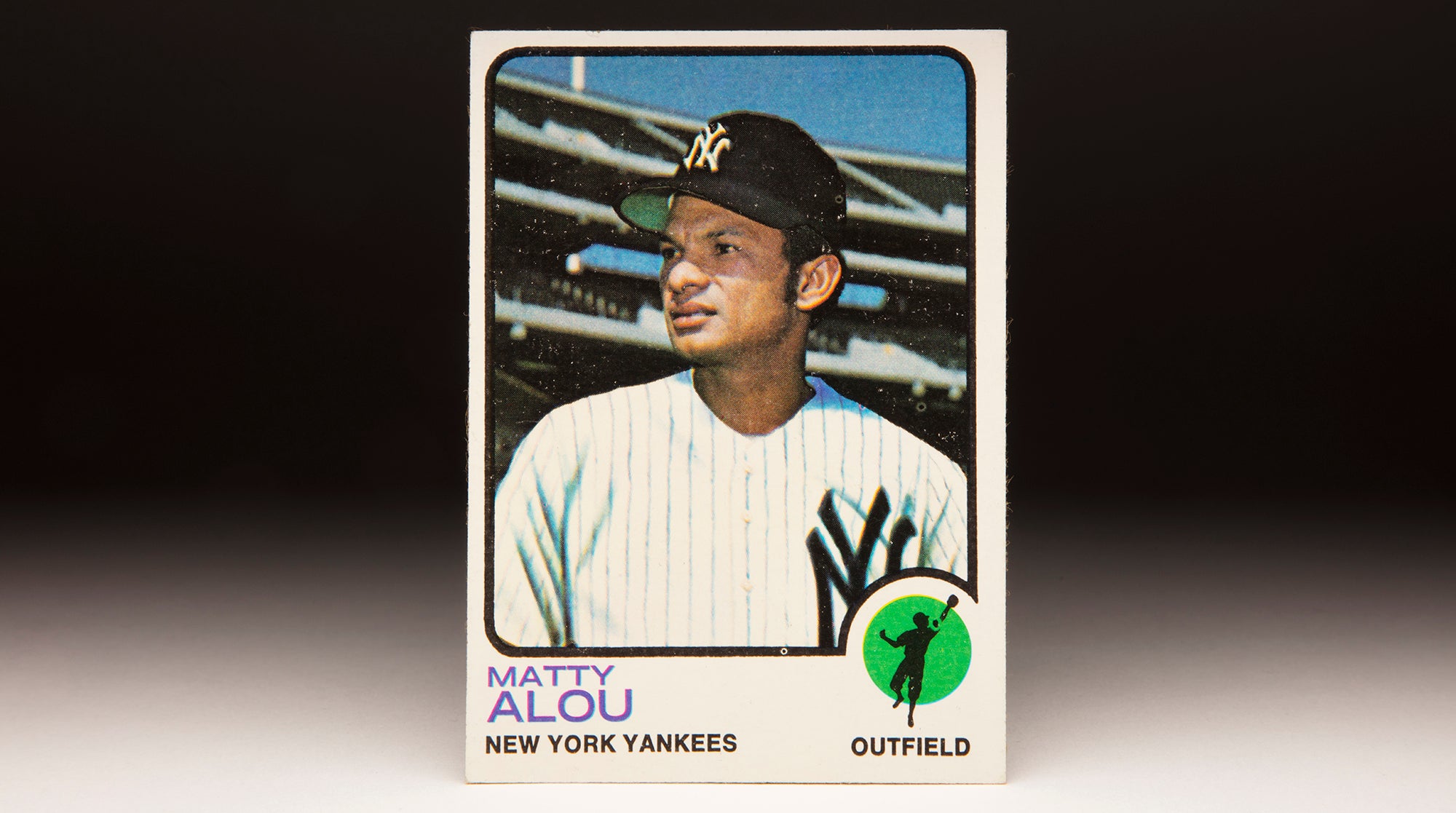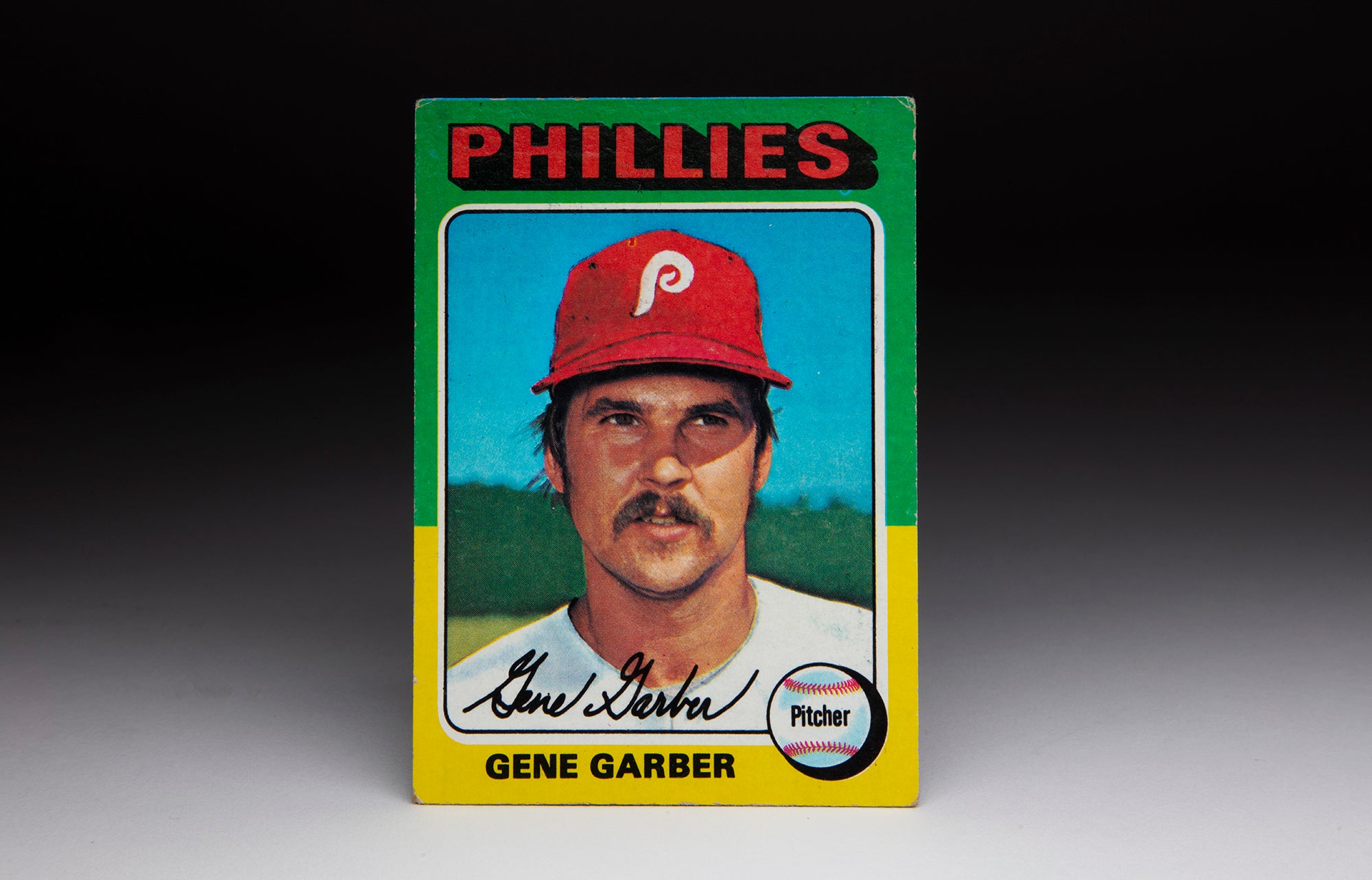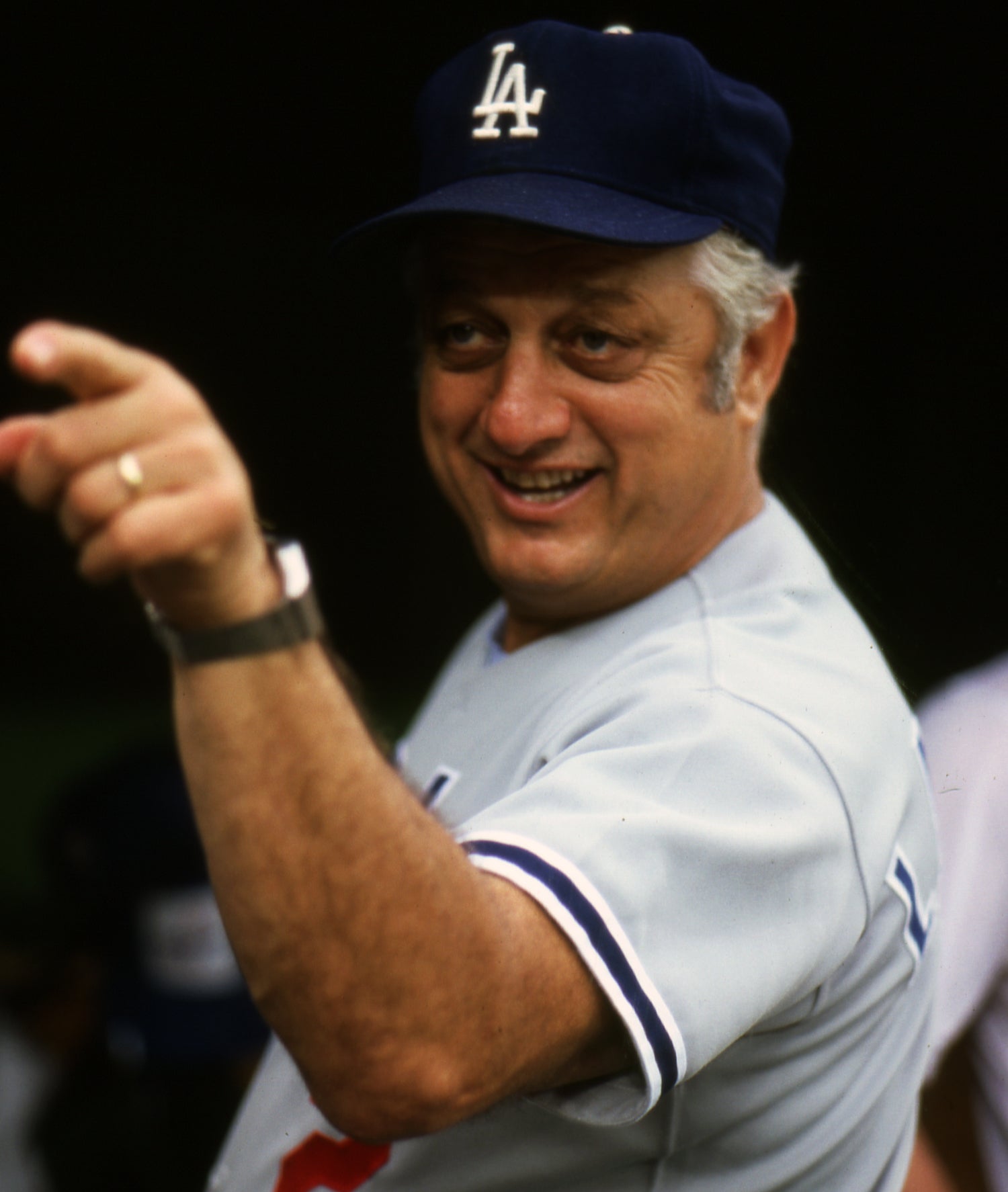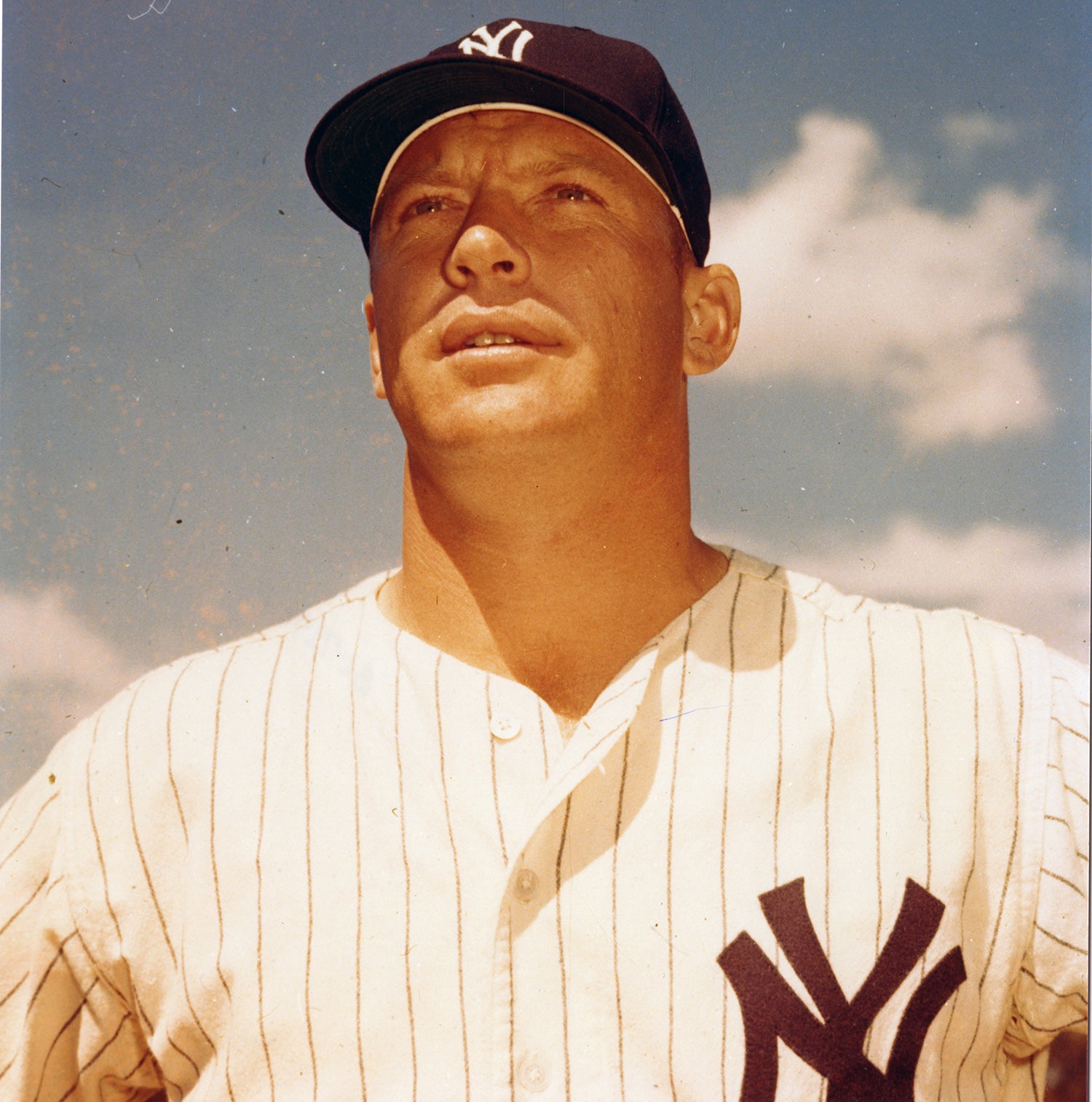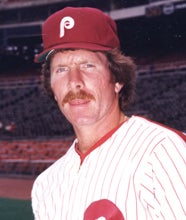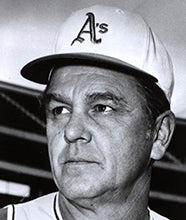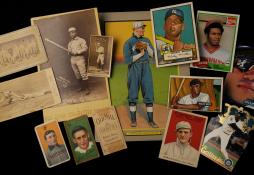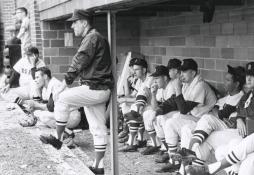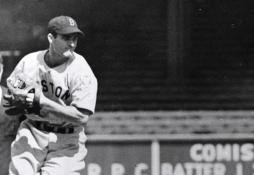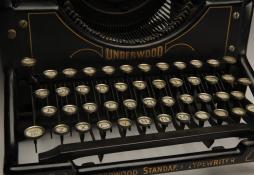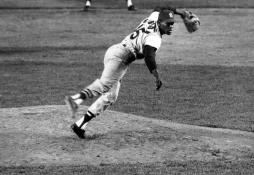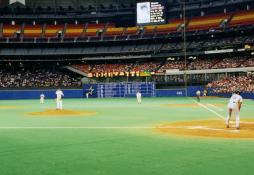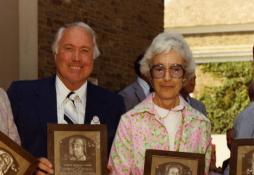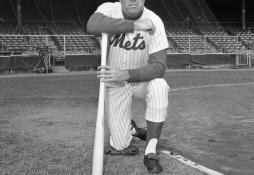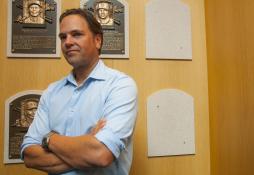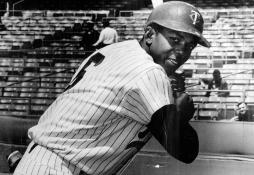- Home
- Our Stories
- #CardCorner: 1967 Topps Vic Davalillo
#CardCorner: 1967 Topps Vic Davalillo
At the plate, Vic Davalillo left his mark with more than 4,000 professional hits and once – however briefly – shared the MLB record for most pinch hits in one season.
On the mound, Davalillo also left a legacy – becoming the only pitcher in history with more than one appearance and an infinite career earned run average.
But no matter the measuring stick, Davalillo’s legacy is secure as one of the best ballplayers ever to come out of Venezuela.
Born July 30, 1939, in Cabimas, Venezuela – although the date, the year and the exact location of his birth have been variously reported in different fashions – Davalillo learned the game from his older brother Pompeyo, whose big league career consisted of 19 games with the Senators in 1953 but who went on to become a legendary scout.
Be A Part of Something Greater
There are a few ways our supporters stay involved, from membership and mission support to golf and donor experiences. The greatest moments in baseball history can’t be preserved without your help. Join us today.
“I started playing when I was seven and played right field and pitcher for the Chicos team when I was 10,” Victor Jose Davalillo told the Pittsburgh Press in 1972 when he was a member of the Pirates. “My older brother, Pompeyo, played professional ball and he taught me a lot. He took me to Cuba to learn the game.”
Beginning his pro career in the mid-1950s in Venezuela, Davalillo signed with Cincinnati on April 16, 1958, and was sent to Visalia of the California League. Then primarily a pitcher, Davalillo finished the season with Class D Palatka of the Florida State League, where he went 4-2. He returned to Palatka in 1959 as a two-way player, hitting .291 in 73 games while posting a 16-7 mark with a 2.45 ERA as a pitcher.
Davalillo spent most of 1960 with Topeka of the Class B Three-I League but did find his way into a handful of Triple-A games with the Havana/Jersey City team where Pompeyo was playing. He pitched in 38 games in 1961 with teams at three different levels – and his career seemed to be at a crossroads at that point.
But all this time, Davalillo was playing winter ball in Venezuela – and putting up numbers at the plate that were at or near the top of the league. So in 1962, Davalillo concentrated on hitting with Triple-A Jacksonville after the Reds sold his contract to Cleveland following the 1961 campaign.
In 150 games for the Suns in 1962, Davalillo hit .346 – best in the International League – including 27 doubles, 18 triples, 11 home runs, 69 RBI and 24 steals. The Indians brought him to Spring Training in 1963, and he immediately impressed observers with his speed and determination.
“He has the tools to win a job,” Indians general manager Gabe Paul told the Salem (Ohio) News.
Davalillo did just that, claiming the center field position. When he started on Opening Day, he became the eighth Venezuelan to play in an AL or NL game.
He started almost every day until he was hit by a pitch from Detroit’s Hank Aguirre on the right arm on June 12, breaking his ulna bone when he threw his arm in front of a pitch that looked to be headed for his skull. Davalillo was hitting .304 at that point and was considered one of the favorites for the American League Rookie of the Year Award.
“This is a terrible break for Vic,” Indians manager Birdie Tebbetts told the Akron Beacon Journal. “Actually, he was just getting his feet on the ground and starting to add more heroics – like scoring from third on a 100-foot pop fly to the shortstop.”
Davalillo returned to the lineup in August and finished with the season with a .292 batting average and 44 runs scored in 90 games. But with expectations running high in 1964, Davalillo seemed more tentative at the plate and hit .270 with 21 steals and 64 runs scored to go with a Gold Glove Award for his play in the outfield. Decent numbers, but not those expected of an athlete many considered the Indians’ most exciting player.
“When I first came to the big leagues with Cleveland in 1963, I could go from the plate to first base in 3.1 seconds,” Davalillo told the Pittsburgh Post-Gazette later in his career. “Maybe Mickey Mantle was faster then. Maybe.”
Davalillo bounced back for what became his best big league season in 1965, hitting .301 with 26 steals in 142 games – earning an All-Star Game selection (he was hitting .321 at the All-Star break) and down-ballot votes in the AL Most Valuable Player Award race.
But in 1966, Tebbetts began platooning the lefty-swinging Davalillo. Playing against mainly right-handed starters, Davalillo hit .250 in 121 games. He totaled just eight stolen bases despite earning the reputation as the fastest player on Cleveland’s roster.
Davalillo’s batting average went up to .287 in 1967 but he was still a platoon player, appearing in 139 games but recording only 375 plate appearances. He was also discouraged from stealing bases by new manager Joe Adcock.
“I (felt) trapped and depressed,” Davalillo told the Los Angeles Times News Service in 1969. “Adcock (said) I could only run when he said so. I must feel free to run, to steal when I want to.”
After hitting .239 through 51 games in 1968, Davalillo was traded to the Angels in exchange for Jimmie Hall on June 15. He finished the season on a hot streak and wound up hitting .277 with 25 steals in 144 games. But at age 28, Davalillo’s career as an everyday player was at an end.
“He’s my best hitter,” Angels manager Bill Rigney said just prior to the 1969 season. “I ask myself what we look like with Davalillo out of the lineup and I don’t like the answer.”
But in 1969, Davalillo was hindered by events from the offseason. Various reports had him suffering a nervous breakdown and batting alcohol issues, and he was hitting .155 in 33 games before he was traded to the Cardinals for Jim Hicks on May 30. He found his batting stroke again in St. Louis, pushing his average up to .219 while appearing off the bench and as a pinch hitter.
In the span of four days in late June and early July, Davalillo made two appearances on the mound during one five-game series against the Mets that included a doubleheader. With the Cardinals losing 10-2 on June 30, Davalillo relieved to start the ninth inning, walking Tommie Agee and allowing a single to Bobby Pfeil before being relieved by Chuck Taylor, who wriggled out of the jam without allowing a run to score.
Then on July 3, Davalillo entered the game in the top of the eighth inning with the Mets winning 7-1. He again walked Agee to lead off the frame before allowing a run-scoring double to Ken Boswell. Joe Hoerner relieved Davalillo at that point – and Davalillo never again pitched in the big leagues, leaving him with an infinite ERA after allowing a run but not recording any outs in his two appearances. He remains the only pitcher in history with a career ERA of infinity who appeared in more than one game.
In 1970, Davalillo made the Cardinals’ Opening Day roster as a bench player and began recording pinch hits with near-record regularity. He made national news with a pinch hit off of the Mets’ Tug McGraw on Aug. 31, a ninth-inning single that was believed to be his 23rd pinch hit of the season – setting a new NL record. But that total had included two hits on June 7 vs. the Padres: One as a pinch hitter leading off the seventh inning and then another in the same inning when the Cardinals batted around while scoring seven runs. For the record books, only the first at-bat counted as a pinch hit.
“I feel I got two pinch hits in that game with San Diego,” Davalillo told United Press International. “But all I care is that we won the game.”
The record was corrected in September – making national news – and Davalillo got two more pinch hits that month to bring his total to 24, which tied Dave Philley’s mark with Baltimore in 1961 as the record in either league. But subsequent research reduced Davalillo’s mark to 23 – and Philley’s name was erased off the all-time list for either league in 1995 when the Rockies’ John Vander Wal recorded 28 pinch hits.
Davalillo, though, had established himself as a veteran bench bat by hitting .311 in 111 games. On Jan. 31, 1971, Davalillo was involved in a major trade as the Cardinals sent him and pitcher Nelson Briles to the Pirates in exchange for two-time All-Star Matty Alou and pitcher George Brunet.
Coming off the bench for a powerful Pittsburgh team, Davalillo hit .285 in 99 games and saw postseason action for the first time when the Pirates won the NL East. He went hitless in two at-bats in the NLCS vs. the Giants but was 1-for-3 with a run scored in the World Series against Baltimore as the Pirates won the title in seven games. He was involved in the game-deciding play in Game 6 when he entered the game as a pinch hitter in the top of the 10th and then remained in the contest in center field in the bottom of the inning. Frank Robinson scored the winning run from third base on a sacrifice fly to center by Brooks Robinson, dashing home despite a strong throw from Davalillo.
In 1972, Davalillo hit .318 in 117 games and even led Pittsburgh with 14 stolen bases as the Pirates won the NL East for the third straight year. He was intentionally walked in his only action in the NLCS vs. the Reds as Cincinnati advanced to the World Series in five games.
Davalillo struggled in 1973, however, and the Pirates sold his contract to the Athletics on July 31. This put him in position once again to play in the postseason as the defending World Series champions again won the AL West. In the ALCS vs. Baltimore, Davalillo appeared in four of five games – starting the final two games of the series in center field as Bill North was hurt and manager Dick Williams opted to go with veteran lineups. Davalillo went 2-for-3 with a run scored in Game 4 – various media reports had him drinking six beers before the game – and then tripled home Gene Tenace and later scored on a Jesús Alou single in the fourth inning to give Oakland a 3-0 lead it would not relinquish in the deciding Game 5.
Davalillo went 1-for-11 (.091) in six games in the World Series as the A’s defeated the Mets.
Davalillo then started the 1974 season in a 4-for-23 slump. On May 3, the A’s released him. Davalillo publicly blamed the move on new A’s manager Alvin Dark. But when no other big league team showed interest, Davalillo went to play in the Mexican League, where he hit .329 in 71 games for Cordoba.
His MLB career seemingly over, Davalillo returned to Cordoba in 1975, where he hit .355. He moved to Puebla in 1976 and hit .333, then joined Aguascalientes in 1977 – where his brother, Pompeyo, was the manager. Davalillo hit .384 with 30 doubles, 20 steals and 87 runs scored in 135 games in a year where he (most likely) turned 38 years old.
Looking for veteran help down the stretch as they chased the NL West title, the Dodgers purchased Davalillo’s contract for $2,500 and added him to the roster in late August.
“I was certainly surprised the Dodgers got me,” Davalillo told the Associated Press. “I was really shocked. I thought my major league career was all over a couple years ago.”
Davalillo batted .313 (15-for-48) to help Los Angeles win the division crown, pairing with Manny Mota to give Dodgers manager Tommy Lasorda a very effective lefty/righty pinch hitting combo. Then in the NLCS vs. the Phillies, Davalillo played the hero. In Game 3 – his only appearance in the series – Davalillo came to the plate as a pinch hitter with two outs in the top of the ninth and Philadelphia ahead 5-3. With sidewinder Gene Garber on the mound, Davalillo pushed a bunt toward second base and beat it out for a hit. Mota followed with a double to left that scored Davalillo, with Mota advancing to third on an error.
Davey Lopes then hit a ball off third baseman Mike Schmidt’s glove that bounced to shortstop Larry Bowa. Lopes was called safe at first even though television replays seemed to indicate that Bowa’s throw had arrived in time for what should have been the third out. But Mota scored on the play to tie the game, and Bill Russell later singled home Lopes to give the Dodgers a 6-5 win.
“I’m surprised to find myself in the World Series,” Davalillo told AP. “But I’m ready to play.”
Davalillo went 1-for-3 as a pinch hitter in the World Series as Los Angeles lost to New York in six games. He returned to the Dodgers in 1978, hitting .312 over 75 games (81 plate appearances) as Los Angeles again advanced to the World Series against the Yankees. Davalillo got three at-bats, recording a hit and a sacrifice bunt in Game 6 as the designated hitter as the Dodgers again fell in six games.
A slow start to the 1979 season by Davalillo led the Dodgers to ask him to go to Triple-A Albuquerque, and Davalillo did – hitting .317 in 51 games with the Dukes before being recalled in September. Released by Los Angeles following the season, Davalillo returned to Aguascalientes in 1980, where he hit .394 with 143 hits in 94 games before the Dodgers came calling again.
He played that summer in Albuquerque before joining the big league team in September, recording one hit in six pinch-hitting appearances in the final games of his MLB career.
He continued to play in Mexico and Venezuela throughout the 1980s, adding to a professional hit total that by some counts totals more than 4,000. He is the all-time leader in hits, games played, batting average and runs scored among Venezuelan Winter League players.
Over 16 big league seasons, Davalillo hit .279 with 1,122 hits (95 coming as a pinch hitter), 160 doubles and 125 steals. He earned two World Series rings, played in two other Fall Classics and won 32 games as a minor league pitcher, appearing in three games each year for Albuquerque in 1979 and 1980.
Most importantly, Davalillo fulfilled the goal he set the in the earliest days of his career.
“I never want to leave baseball,” Davalillo said during his first Spring Training with the Indians. “I want to make it part of my life forever.”
Craig Muder is the director of communications for the National Baseball Hall of Fame and Museum

